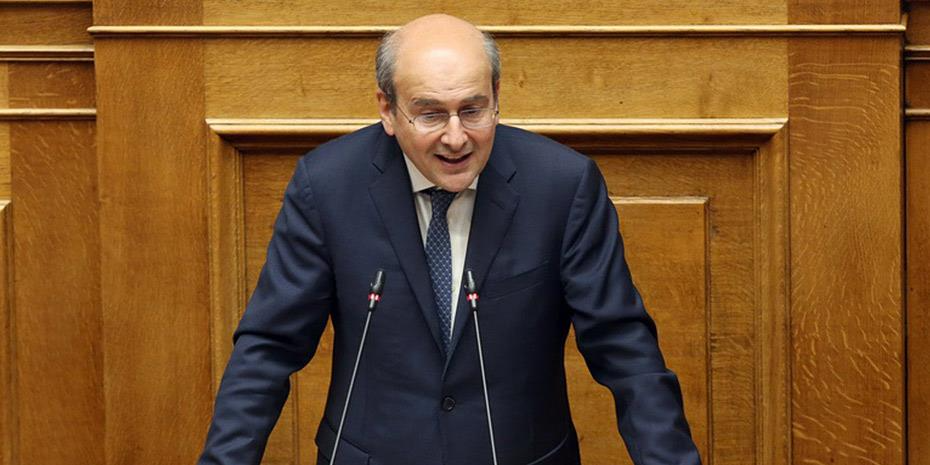
The government is planning interventions at many levels in the banking system, following on from what it has done so far, said Economy and Finance Minister Kostis Hatzidakis, acknowledging that some of the things banks do annoy the majority of citizens. However, the minister clarified that extraordinary taxation of banks' profits is not a possibility, pointing out that banks already face higher taxes than other businesses.
"The government has worked out solutions. Be patient for a few days because the answers we will give will be much more intriguing and much more useful," Hatzidakis said, speaking to Open.
The minister clarified that the government is monitoring issues such as differences in interest rates on loans and deposits, commissions and loans to small and medium-sized enterprises, adding that the planned intervention will cover what society is discussing.
At the same time, he noted that the interventions will come in continuation of what the government has done so far, referring to the possibility of loans being granted by non-banking institutions, the mandatory IRIS and a 50% reduction in commissions for small POS transactions. Next year, IRIS will become mandatory for all businesses, Hatzidakis said, leaving open the issue of raising the transaction limit.
In relation to the scenarios for extraordinary taxation of bank profits, which the Prime Minister also rejected when speaking yesterday at the Morgan Stanley investment conference in London, the minister said, "Banks have just been restored; they have just taken the first steps and are moving forward after the crisis. Something destabilizing them would resemble the last decade's crisis." He added that foreign investors have recently placed their bets on the Greek banking system and its prospects, so the government's decision to impose an extraordinary tax would not benefit investment or the economy.






